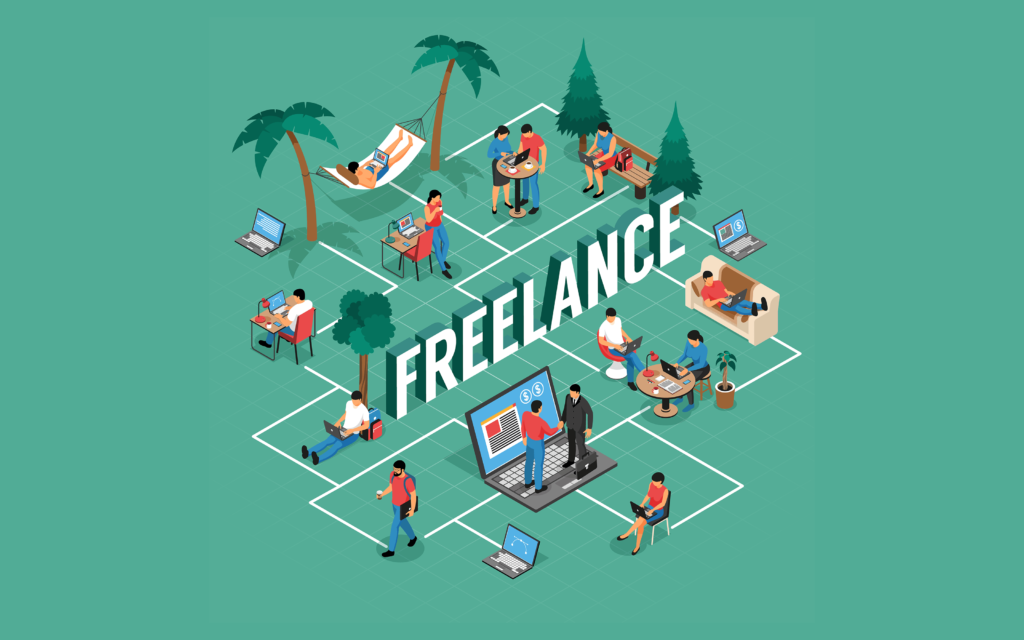March 19, 2022
Good morning. Every Saturday, we write about one specific right that you possess as a citizen in our country. In today’s edition of “Know Your Rights”, we look at the rights of freelancers in India.
KNOW YOUR RIGHTS – EDITION 31
Rights of Freelancers

Time and money are two things that a freelancer doesn’t, or rather shouldn’t, take for granted. Much of the world settled into a 9-5 work cycle, a fixed income, a possible promotion, increased workload, etc. There are many who don’t follow that norm and choose to step outside their comfort zones to take matters into their own hands, to some degree.
The world of freelancing offers such an opportunity. Freelancers aren’t a part of the long-term employees’ list of a company; they don’t have fixed working hours or a fixed salary. India has about 15 million freelancers working in various capacities. A 2018 survey found many Indian companies experimenting with using freelance workers, as 19% hired at least one freelance worker the year before.
According to a report titled “Freelancing in 2020: An Abundance of Opportunities”, by Payoneer, India was the second-fastest growing freelance market worldwide with an estimated 15 million. The report stated changes in technology and workplace expectations that have “redefined traditional employment models.” They contribute to the success of domestic start-ups and big-name companies.
For freelancers, the pandemic has been something of a roller coaster ride. As the pandemic hit, the majority of freelancers and gig workers lost their jobs, and businesses came to a standstill. Once companies resumed operations and adapted to remote work, there was an upswing in demand for freelancers given flexible working conditions.
There has been a quantitative increase in the number of platforms and freelancers in India. There have also been qualitative changes concerning the types of jobs and tasks. They cover categories like software development and technology, sales and marketing support, creative and multimedia, writing, and translation, to name a few.
Becoming a freelancer comes with opportunities and risks. In terms of explicit rights, there isn’t any legislation. However, freelancers are labourers, even though they don’t work full-time but on a contractual basis. Essentially, the right to work and the right to choose a profession, apply to them.
Contractual labour
Currently, there aren’t legal labour codes for Indian freelancers. In India, labour and employment laws and the Minimum Wage Act, 1948, only apply to employees working in the government, PSUs, and the private sector. This includes issues like collective bargaining and unionising; there are no such unions for freelancers.
Under the Contract and Labour (Regulation and Abolition) Act, 1970, self-employed people can form written contracts with their clients. There isn’t a fixed long-term timely income for freelancers as regular salaried employees would get. Finalising a contract is important to set expectations and avoid any tussles down the road.
As per the Indian Contract Act, 1872, agreements can be made orally or in writing. However, without a written contract a client isn’t liable to pay since there is no evidence that payment for the services rendered was agreed upon. A contract agreement that clearly lays out the nature of work, timelines & deadlines, payment, confidentiality clauses, etc. is a necessity.
As far as employment conditions and issues like remuneration, work conditions, and credits are concerned, the law doesn’t require freelancers to be treated on par with regular salaried employees. Taking freelance journalists, for example, there is the Working Journalists & Other Newspaper Employees (Conditions of Service) and Miscellaneous Provisions Act, 1955. It deals with the legal position of employed (part-time or full-time) journalists.
Intellectual property (IP) and ownership
When you are a freelancer for a client, who owns the work? A freelancer can license their work to the clients, but the copyright remains in their hands. They can use it on other platforms as per their needs and requirements. That’s different if you’re a permanent employee wherein the company owns your work. For example, a freelance artist owns their work and not the client they did it for.
Abroad, for example, under UK, EU, and Swiss laws, the author is the first owner of the copyright. From a company’s perspective, freelancers aren’t their employees, so copyright is not transferred to the client.
There are a few laws in India that freelancers should be familiar with: The Copyright Act 1957, Patents Act 1970, Trade Marks Act 1999. For freelancers, Intellectual Property (IP) is the work created by them during the tenure of their contract with a company. In this case, IP can be an invention, design, or brand that an individual has legal rights over.
Understanding these rights is important since freelancers get recognition and royalties for their work. In India, you need to register your IP with the Office of Controller General of Patents, Designs, and Trade Marks under the Ministry of Commerce and Industry.
Millennials and Gen-Z no longer feel the need to be tethered to conventional 9-5 jobs. India’s freelance market is projected to grow to $20-30 billion by 2025. The online freelance marketplace could contribute $2.7 trillion to the GDP by 2025. Freelancers in India saw bigger and more opportunities as the pandemic set in.
Economic inclusion is one of the key tenets of those arguing for platform-mediated freelance work. It helps those who are at a disadvantage in the regular labour market. It also allows companies to look at a larger talent pool not limited by geography. As Harsh Jain, co-founder & CTO of UniGigs wrote, the freelance community can empower women, the differently-abled, and those living in remote areas. This only underscores the need for their legal protection.

